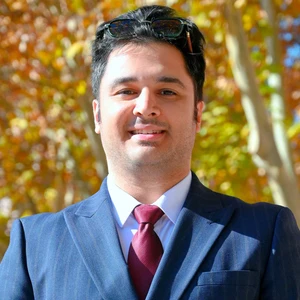
Stories of Resilience and Innovation: Women in Afghanistan Under the Taliban  By Shanthie Mariet D’SOUZA, PhD, founder & president, Mantraya Institute for Strategic Studies (MISS) By Shanthie Mariet D’SOUZA, PhD, founder & president, Mantraya Institute for Strategic Studies (MISS)
The dominant narrative on women in Afghanistan, one that appears fairly regularly in international media, is a story of restrictions, denial, and loss of rights. Under the Taliban’s Islamic Emirate, the rights of women are under siege. It is arguably one of the key reasons why the regime’s yearning for broad international recognition is yet to actualize. However, what is often missed are the stories of courage, adaptation, and resilience by Afghan women who, while living within those structural constraints, are trying to make a difference. And to an extent, even the de facto Taliban authorities acknowledge this reality. Any hope that things would change for the better in the future must take note of these windows of opportunities and build on the agency exhibited by women inside Afghanistan who are navigating a complex terrain. READ MORE
- EGF Editor |
Published on EGF: 01.10.2025
| Markets
-
Armenia–China Strategic Partnership: Another Step in Foreign-Policy Diversification  By Benyamin POGHOSYAN, PhD, Senior Research Fellow at the APRI Armenia By Benyamin POGHOSYAN, PhD, Senior Research Fellow at the APRI Armenia
Armenia and China established a strategic partnership on August 31, 2025, in the margins of the Shanghai Cooperation Organization (SCO) summit held in Tianjin, China. The establishment of a strategic partnership with China can be seen as another step within the Armenian Government’s “balanced and balancing foreign policy” or “pivot to the world,” as first articulated by the Armenia’s Secretary of the Security Council during the 2024 Applied Policy Research Institute (APRI) Armenia Forum. As part of its “pivot to the world,” a few weeks prior to the SCO summit Armenia applied for full membership of the organization (currently Yerevan is a dialogue partner) and in spring 2025, the Armenian Parliament adopted a law on launching the process of accession of the Republic of Armenia to the European Union. READ MORE
- EGF Editor |
Published on EGF: 01.10.2025
| External Relations
-
Azerbaijan Attempts Pragmatic Diplomacy at SCO Summit
 By Fuad SHAHBAZOV, Baku-based independent regional security and defence analyst By Fuad SHAHBAZOV, Baku-based independent regional security and defence analyst
On August 30, Azerbaijani President Ilham Aliyev arrived in the People’s Republic of China (PRC) to attend the 25th Meeting of the Council of Heads of State of the Shanghai Cooperation Organization (SCO) in Tianjin. Azerbaijan holds the status of a “dialogue partner” of the SCO but is not a full member. Aliyev’s attendance at the PRC-led SCO summit came amid simmering tensions between Azerbaijan and Russia, followed by mutual accusations and bellicose rhetoric of the Russian conservative establishment against Azerbaijan. In the face of Moscow’s open accusations and attempts to pressure Azerbaijan through frequent police raids against the local Azerbaijani diaspora, Baku is actively building alternative partnership formats in the Caucasus, Central Asia, and beyond. Since the beginning of 2025, Azerbaijan has significantly boosted its partnerships outside the Caucasus and Russia. The recent breakthrough in Azerbaijan’s diplomacy paved the way for establishing a strategic partnership with the PRC, which was cemented in an April agreement. READ MORE
- EGF Editor |
Published on EGF: 23.09.2025
| External Relations
-
Advancing Azerbaijan-China Energy Cooperation within the SCO Framework
 By Vusal GULIYEV, Leading Advisor at the Baku-based Center of Analysis of International Relations (AIR Center) By Vusal GULIYEV, Leading Advisor at the Baku-based Center of Analysis of International Relations (AIR Center)
Azerbaijani President Ilham Aliyev delivered a speech at the “Shanghai Cooperation Organization Plus” (SCO+) meeting in Tianjin, China (September 2025) underlining Azerbaijan’s role in regional connectivity and energy cooperation. Energy is a cornerstone of Azerbaijan’s economy and a major area of cooperation with both China and other SCO countries. As a hydrocarbon-rich nation on the Caspian Sea, Azerbaijan brings significant oil and gas assets to any partnership. It has leveraged its dialogue partner status in the SCO to advance energy collaboration aiming to diversify its export markets, attract investment in energy infrastructure, and even develop new energy technologies. Building on this foundation, Azerbaijan has gradually shifted its energy focus from its traditional European partners toward emerging Asian markets. Traditionally, Azerbaijan’s oil and gas have flowed Westward to Europe (through pipelines like BTC and TANAP), but now Asian markets are increasingly in focus. China has begun importing Azerbaijani crude oil in recent years. Although volumes are modest relative to Azerbaijan’s exports to Europe, they signal a growing Far Eastern demand. READ MORE
- EGF Editor |
Published on EGF: 12.09.2025
| Energy
-
Peace in South Caucasus Closer After the Washington Summit, but Uncertainties Loom
 By Vasif HUSEYNOV, PhD, Head of Department, AIR Center, Adjunct Lecturer, ADA and Khazar Universities, Baku By Vasif HUSEYNOV, PhD, Head of Department, AIR Center, Adjunct Lecturer, ADA and Khazar Universities, Baku
On August 28, Armenian Prime Minister Nikol Pashinyan announced that his country will start substantive talks next month with the United States and Azerbaijan on the practical arrangements for opening a transit route to Azerbaijan’s Nakhichevan exclave via the territory of Armenia. The agreement on this route (hereafter the Zangezur Corridor) was reached on August 8 during a trilateral meeting between Azerbaijani President Ilham Aliyev and Prime Minister Pashinyan, mediated by U.S. President Donald Trump. According to the trilateral agreement, the route (renamed as the Trump Route for International Peace and Prosperity, or TRIPP) would serve as an “unimpeded” passage and be managed through what Trump called an “exclusive partnership” between Armenia and the United States for 99 years. According to Pashinyan, this implies the deployment of an “Armenia-United States company” which “will carry out the business management”. He underscored that the company “will not control that road but manage it,” refuting the domestic criticism about the loss of Armenian sovereignty over the route and the sublease of the territory to the United States. READ MORE
- EGF Editor |
Published on EGF: 12.09.2025
| External Relations
-
Russia — Ukraine’s Accidental Matchmaker
 By Fuad Shahbazov, Baku-based independent regional security and defence analyst By Fuad Shahbazov, Baku-based independent regional security and defence analyst
Uneasy neighbours at the best of times, open hostility from the Kremlin is pushing Azerbaijan closer to Ukraine.
Russian drones attacked an oil depot in Odesa in Ukraine on August 17. That’s not unusual, but that night’s target was notable in one important sense — the Kremlin struck high-profile infrastructure owned by SOCAR, Azerbaijan’s state oil company. This was no accident. Russia had attacked the same SOCAR facility in Ukraine on August 8. Taken together with a series of other events, it has become clear that Putin’s men are sending a message. That comes at some risk to themselves and potential benefits for Ukraine. These weren’t the first or even the most serious Russian acts of hostility against the energy-rich South Caucasian nation. On Christmas Day, Russian missile batteries shot down a scheduled Azerbaijan Airways plane, killing 38 people. The incident caused uproar, not least because while the missile firing may have resulted from mistaken identity, Russian air controllers refused the badly damaged aircraft permission to land. READ MORE
- EGF Editor |
Published on EGF: 08.09.2025
| External Relations
-
The 2025 Trump–Putin Summit in Alaska: Geopolitical Implications Amid the Ukraine War
 By Yunis GURBANOV, PhD, Senior Advisor at the AIR Center, Baku By Yunis GURBANOV, PhD, Senior Advisor at the AIR Center, Baku
The Alaska summit highlighted the discordant divergence between Washington and Moscow after Russia's invasion of Ukraine, and exposed the limits of summit diplomacy in the context of a grinding war. President Trump reaffirmed America's formal commitment to Ukraine's sovereignty and NATO's deterrent stance, but his words were typically qualified by continual calls for a "realistic settlement" with Moscow. This contrasted sharply with the State Department’s prior line, suggesting internal tensions within Washington’s approach. President Putin, for his part, sought to capitalize on these uncertainties: he promoted Russia's military successes as irreversible facts on the ground, demanded Western recognition of occupied land, and framed Moscow's actions as a defensive reaction against NATO "encirclement. READ MORE
- EGF Editor |
Published on EGF: 08.09.2025
| External Relations
-
Turkish Policy in the South Caucasus and Relations with Russia  By Benyamin POGHOSYAN, PhD, Senior Research Fellow at the APRI Armenia By Benyamin POGHOSYAN, PhD, Senior Research Fellow at the APRI Armenia
Turkey-Russia relations are typically based on compartmentalization. They simultaneously compete and cooperate in various regions, separating the areas in which their interests are overlapping from those where they are in competition. This concept was the base of their competing relations in Syria until the demise of Assad regime in 2024, and mutual interactions in post-Gaddafi Libya. Another aspect of compartmentalization is the conscious separation of economy and geopolitics: they have been developing economic cooperation while competing in geopolitics. Economic cooperation is significant for both Russia and Turkey, considering Russian gas and oil imported by Turkey and the construction by the Russian state nuclear energy company ROSATOM of a nuclear power plant in Akkuyu, southern Turkey. READ MORE
- EGF Editor |
Published on EGF: 08.09.2025
| External Relations
-
The Washington Summit and Its Implications for South Caucasus Geopolitics  By Sultan ZAHIDOV, Leading Advisor at the AIR Center, Baku and Senior Lecturer at the Baku State University By Sultan ZAHIDOV, Leading Advisor at the AIR Center, Baku and Senior Lecturer at the Baku State University
For decades, establishing lasting peace in the South Caucasus has been one of the most persistent challenges for regional states and international actors alike. Straddling vital geostrategic lines of Eurasia, this region has long been a geopolitical “shatter belt” — a zone where the interests of great and regional powers collide. External actors have repeatedly sought to exploit these divisions, employing “divide et impera” strategies that, rather than resolving disputes, have often exacerbated tensions. Not without reason, renowned scholar Thomas de Waal describes the South Caucasus as “the lands in between,” emphasizing its role as a crossroads of competing powers. According to Barry Buzan’s ‘overlay’ concept, the weakening and decline of great powers paves the way for the resurgence of past conflicts that had previously been de-escalated under the authority of the dominant power. Indeed, the collapse of the Soviet Union reopened the Pandora’s box of frozen conflicts, none more consequential than the Armenia–Azerbaijan conflict. READ MORE
- EGF Editor |
Published on EGF: 08.09.2025
| External Relations
-
India’s China Embrace and US Decoupling  By Shanthie Mariet D’SOUZA, PhD, founder & president, Mantraya Institute for Strategic Studies (MISS) By Shanthie Mariet D’SOUZA, PhD, founder & president, Mantraya Institute for Strategic Studies (MISS)
Over the past few months, a process of normalization in the China-India bilateral has taken off.
Relations between nations can be fragile. Contingent upon internal and external factors – interests and compulsions – sour relations can turn into mutually beneficial partnerships. At the same time, harmonious relations that held out promises for the future can go awry. India is undergoing such a phase of transformation and rebalancing. Donald Trump’s United States, with the imposition of 50 percent tariffs, appears to have scaled down its interest in India as a checkmate to China’s assertive foreign policy in the Indo-Pacific, endangering the Quad. China, also bruised by Trump’s tariff policy, is sensing an opportunity to not just mend ties with India, but also try creating a Beijing-Moscow-New Delhi alliance. In light of these shifts, New Delhi’s much-avowed policy of strategic autonomy is undergoing a reorientation of sorts – swinging from a tilt toward the U.S. to one that is veering toward Beijing, albeit with a continued hope that Washington may realize its mistake and change tracks. READ MORE
- EGF Editor |
Published on EGF: 08.09.2025
| External Relations
-
|
|
